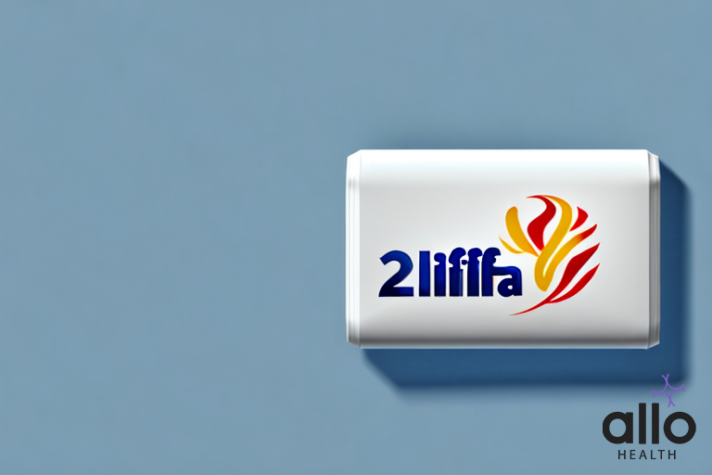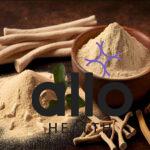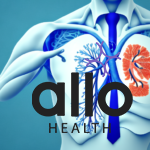Sildenafil 20 mg Tablets: Does It Cure Erectile Dysfunction?

Allo Health is dedicated to personalized well-being, offering support and trusted information tailored to individual health goals. The platform emphasizes human-generated content, led by a distinguished medical team of experts, including physicians and sexual health specialists. Their commitment to credibility involves rigorous fact-checking, authoritative research, and continuous updates to ensure accurate, up-to-date information. Allo Health's unique approach goes beyond conventional platforms, providing expert-led insights and a continuous commitment to excellence, with user feedback playing a crucial role in shaping the platform's authoritative voice.

Dr Sanina Mansoor holds MBBS degree from Yenepoya university,Mangalore.She has 8 years of experience working as a medical officer at various health centres and medical colleges.
Why This Was Upated?
Our experts continually monitor the health and wellness space, and we update our articles when new information became available.
Updated on 20 December, 2023
- Article was updated as part of our commitment to diversity, equity, and inclusion.

"The following blog article discusses exercise and its potential benefits for general health and well-being. However, it is important to understand that the information provided is for general educational purposes only and should not be considered as personalized exercise advice or a substitute for professional guidance from a qualified fitness professional or healthcare provider. Before starting or modifying any exercise program, it is recommended to consult with a qualified fitness professional.
Book consultation
The information presented in this article may not be suitable for everyone, as individual fitness levels, health conditions, and limitations can vary significantly. A qualified fitness professional can assess your specific fitness needs, consider any medical concerns or limitations, and provide personalized recommendations and exercise plans that are safe and effective for you.
Participating in physical activity, including exercise, carries inherent risks. It is crucial to listen to your body, exercise within your personal limits, and be aware of any signs of discomfort or potential injury. If you experience any pain, dizziness, shortness of breath, or other concerning symptoms during exercise, it is important to stop immediately and seek medical attention if necessary.
The exercises or activities mentioned in this article may not be suitable for individuals with specific medical conditions, injuries, or physical limitations."
Sildenafil 20 mg tablets are a type of medication used in the treatment of erectile dysfunction (ED). This medication has been shown to be highly effective in helping men achieve and maintain an erection. In this article, we’ll take a closer look at sildenafil 20 mg tablets and explore the various benefits they offer to men with ED.
What are Sildenafil 20 mg Tablets?
Sildenafil 20 mg tablets are a medication used to treat erectile dysfunction (ED) and pulmonary arterial hypertension (PAH). The active ingredient in these tablets is sildenafil citrate, which belongs to a class of drugs called phosphodiesterase type 5 (PDE5) inhibitors. Here’s a detailed explanation of what sildenafil 20 mg tablets are and how they work:
Purpose and Uses:
- Erectile Dysfunction (ED): Sildenafil 20 mg tablets are primarily prescribed to men with ED, a condition where a man is unable to achieve or maintain an erection sufficient for sexual intercourse. Sildenafil helps relax the blood vessels in the penis, allowing blood to flow into the erectile tissues, which results in an erection.
- Pulmonary Arterial Hypertension (PAH): In addition to treating ED, sildenafil is used to treat PAH, a condition characterized by high blood pressure in the arteries of the lungs. By relaxing the blood vessels in the lungs, sildenafil helps reduce the workload on the heart and improves the symptoms of PAH.
Mechanism of Action:
- Sildenafil works by inhibiting the enzyme phosphodiesterase type 5 (PDE5). PDE5 is responsible for breaking down a chemical called cyclic guanosine monophosphate (cGMP) in the body.
- During sexual stimulation, nitric oxide is released into the penis, which activates an enzyme called guanylate cyclase. This enzyme increases levels of cGMP, causing the smooth muscles in the penis to relax and allowing increased blood flow, leading to an erection.
- By inhibiting PDE5, sildenafil prolongs the effects of cGMP, enhancing the erectile response when a man is sexually stimulated.
Dosage and Administration:
- Sildenafil 20 mg tablets are typically taken as needed, approximately 30 minutes to 1 hour before sexual activity.
- The tablet is usually swallowed whole with a glass of water. It can be taken with or without food, but it may take longer to work if taken with a high-fat meal.
- The dose can be adjusted based on the individual’s response and tolerance, but it is important not to exceed the recommended dosage without consulting a healthcare provider.
Precautions and Considerations:
- Interactions: Sildenafil can interact with certain medications, especially nitrates (commonly prescribed for chest pain) and other drugs used to treat ED. It’s essential to inform your healthcare provider about all the medications you are taking.
- Health Conditions: Individuals with certain health conditions, such as heart C, liver or kidney disease, low blood pressure, or a history of stroke, should exercise caution and concXtheir healthcare provider before taking sildenafil.
- Side Effects: Common side effects may include headache, flushing, indigestion, and nasal congestion. Serious side effects are rare but can include prolonged erections (priapism), sudden vision loss, and hearing loss. Seek medical attention if you experience any severe or persistent side effects.
Sildenafil 20 mg tablets are an effective and widely used treatment for ED and PAH. However, it’s crucial to use this medication under the supervision of a healthcare provider, following their recommendations and guidelines. If you suspect you may benefit from sildenafil, consult a healthcare professional for a proper evaluation and prescription.
Sildenafil 20 mg Tablets mg Uses
Sildenafil 20 mg tablets are prescribed by healthcare providers for two primary uses:
Treatment of Erectile Dysfunction (ED):
Sildenafil 20 mg tablets are commonly used to treat erectile dysfunction, a condition where a man is unable to achieve or maintain an erection sufficient for sexual activity. The medication works by increasing blood flow to the penis during sexual stimulation, helping men attain and sustain an erection. It is important to note that sildenafil does not cause spontaneous erections; sexual arousal is still necessary for the medication to be effective.
Treatment of Pulmonary Arterial Hypertension (PAH):
Sildenafil is also used to treat pulmonary arterial hypertension, a condition characterized by high blood pressure in the arteries that supply the lungs. By relaxing the blood vessels in the lungs, sildenafil reduces the workload on the heart and improves symptoms such as shortness of breath and fatigue associated with PAH. This use of sildenafil helps enhance exercise capacity in individuals with pulmonary arterial hypertension.
In both cases, the 20 mg dosage of sildenafil is a specific strength that is prescribed based on the individual’s health condition, response to the medication, and the healthcare provider’s assessment. It’s crucial to take the medication as directed and to follow the healthcare provider’s recommendations regarding dosage and administration. Additionally, individuals taking sildenafil should be aware of possible interactions with other medications and should inform their healthcare provider about all the drugs they are taking to prevent adverse reactions.
Sildenafil 20 mg Tablets Side Effects
Sildenafil 20 mg tablets, like any medication, can cause side effects in some individuals. It’s important to note that not everyone will experience these side effects, and many people tolerate the medication well. Common side effects are usually mild and temporary, but some individuals may experience more serious reactions. Here’s a detailed list of potential side effects associated with sildenafil 20 mg tablets:
Common Side Effects:
- Headache: A common side effect, often mild to moderate in nature.
- Flushing: Some individuals may experience redness or warmth in the face and neck.
- Indigestion: Upset stomach or heartburn can occur.
- Nasal Congestion: Stuffy or runny nose.
- Dizziness or Lightheadedness: Feeling faint or woozy, especially when getting up from a sitting or lying position.
Less Common Side Effects:
- Vision Changes: Some people might experience changes in vision, such as blurred vision, increased sensitivity to light, or a blue-green tinge to objects.
- Diarrhea: Uncommon, but some individuals may experience digestive concerns.
- Muscle Aches: Rarely, muscle pain or back pain can occur.
Serious Side Effects (Rare, but Require Immediate Medical Attention):
- Priapism: An erection that lasts for more than four hours. This is a medical emergency and requires immediate treatment to prevent damage to the penis.
- Sudden Vision or Hearing Loss: In some cases, sildenafil has been associated with sudden vision or hearing loss. Seek medical attention if you experience sudden vision changes or hearing loss.
- Severe Dizziness or Fainting: If you experience severe dizziness or fainting, it could be a sign of a serious underlying condition.
- Allergic Reactions: Symptoms may include rash, itching, swelling of the face, lips, tongue, or throat, severe dizziness, or difficulty breathing. Allergic reactions to sildenafil are rare but can be serious.
It’s important to seek medical attention if you experience any of these serious side effects. Additionally, if you have a history of heart V, low or high blood pressure, liver or kidney disease, bleeding disorders, or have had a stroke, it’s crucial to inform your healthcare provider before taking sildenafil.
It’s important to follow the prescribed dosage and usage instructions provided by your healthcare provider. If you are concerned about the side effects or if they persist or worsen over time, consult your healthcare professional. They can provide guidance and, if necessary, adjust your treatment plan.
Sildenafil 20 mg Tablets Drug Interactions
Sildenafil 20 mg tablets can interact with various drugs and substances. These interactions can affect how sildenafil works or increase the risk of side effects. It’s crucial to inform your healthcare provider about all the medications, supplements, and herbal products you are taking to avoid potentially harmful interactions. Here’s a detailed overview of drug interactions with sildenafil:
Nitrates:
- Interaction: Sildenafil can enhance the hypotensive (blood pressure-lowering) effects of nitrates. Combining sildenafil with nitrates, commonly used to treat angina (chest pain), can cause a severe drop in blood pressure, leading to dizziness, fainting, or even a heart attack or stroke.
- Examples: Nitroglycerin, isosorbide dinitrate, isosorbide mononitrate.
Alpha-Blockers:
- Interaction: Alpha-blockers, used to treat high blood pressure and prostate conditions, can also cause a drop in blood pressure. When combined with sildenafil, this effect can be enhanced, leading to dizziness or fainting.
- Examples: Doxazosin, tamsulosin, terazosin.
Other Blood Pressure Medications:
- Interaction: Sildenafil can enhance the effects of other antihypertensive medications, leading to a significant decrease in blood pressure.
- Examples: Amlodipine, metoprolol, enalapril.
CYP3A4 Inhibitors:
- Interaction: Drugs that inhibit the CYP3A4 enzyme can increase the concentration of sildenafil in the blood, leading to a higher risk of side effects.
- Examples: Ketoconazole, itraconazole, erythromycin, clarithromycin, ritonavir, atazanavir.
Guanylate Cyclase Stimulators:
- Interaction: Combining guanylate cyclase stimulators with sildenafil can cause a significant drop in blood pressure.
- Examples: Riociguat.
Recreational Drugs:
- Interaction: Substances like amyl nitrite or “poppers” can interact with sildenafil, leading to a dangerous drop in blood pressure.
- Examples: Amyl nitrite, butyl nitrite.
Grapefruit Juice:
- Interaction: Grapefruit juice can increase the levels of sildenafil in the blood, potentially leading to an overdose and increased risk of side effects.
- Note: It’s advisable to avoid grapefruit juice while taking sildenafil.
Other PDE5 Inhibitors:
- Interaction: Taking multiple PDE5 inhibitors (such as sildenafil, tadalafil, or vardenafil) at the same time can increase the risk of side effects.
- Examples: Tadalafil, vardenafil.
Always consult your healthcare provider if you are unsure whether your current medications can be safely taken with sildenafil. They can provide personalized advice based on your health condition and medical history. Never adjust your medication dosage or stop taking a prescribed medication without consulting your healthcare provider.
Frequently Asked Questions
(1) What is Sildenafil 20 mg used for?
Sildenafil 20 mg tablets are used to treat two primary conditions: erectile dysfunction (ED) and pulmonary arterial hypertension (PAH). In the case of ED, sildenafil helps men achieve and maintain erections during sexual arousal by increasing blood flow to the penis. For PAH, it relaxes the blood vessels in the lungs, reducing pressure in the pulmonary arteries and improving symptoms like shortness of breath.
(2) How should I take Sildenafil 20 mg tablets?
Take sildenafil 20 mg as directed by your healthcare provider, typically 30 minutes to 1 hour before sexual activity for ED. It can be taken with or without food. For PAH, follow your doctor’s recommendations. Do not exceed the prescribed dose, and do not take it more than once a day.
(3) What are the common side effects of Sildenafil 20 mg tablets?
Common side effects include headache, flushing, indigestion, nasal congestion, and dizziness. These are usually mild and temporary. Less common side effects may include vision changes and muscle aches. Serious but rare side effects include priapism (prolonged erection), sudden vision or hearing loss, severe dizziness, or allergic reactions.
(4) Can I drink alcohol while taking Sildenafil 20 mg?
Moderate alcohol consumption is generally safe when taking sildenafil. However, excessive alcohol can increase the risk of side effects and impair your ability to achieve or maintain an erection. It’s advisable to limit alcohol intake when using this medication.
(5) What medications interact with Sildenafil 20 mg tablets?
Inform patients taking sildenafil tablets, 20 mg not to take sildenafil citrate tablets, 25 mg, 50 mg and 100 mg or other PDE-5 inhibitors. 5.8 Priapism Use sildenafil citrate with caution in patients with anatomical deformation of the penis (e.g., angulation, cavernosal fibrosis, or Peyronie’s disease) or in patients who have conditions, which may predispose them to priapism (e.g., sickle cell anemia, multiple myeloma, or leukemia).






































